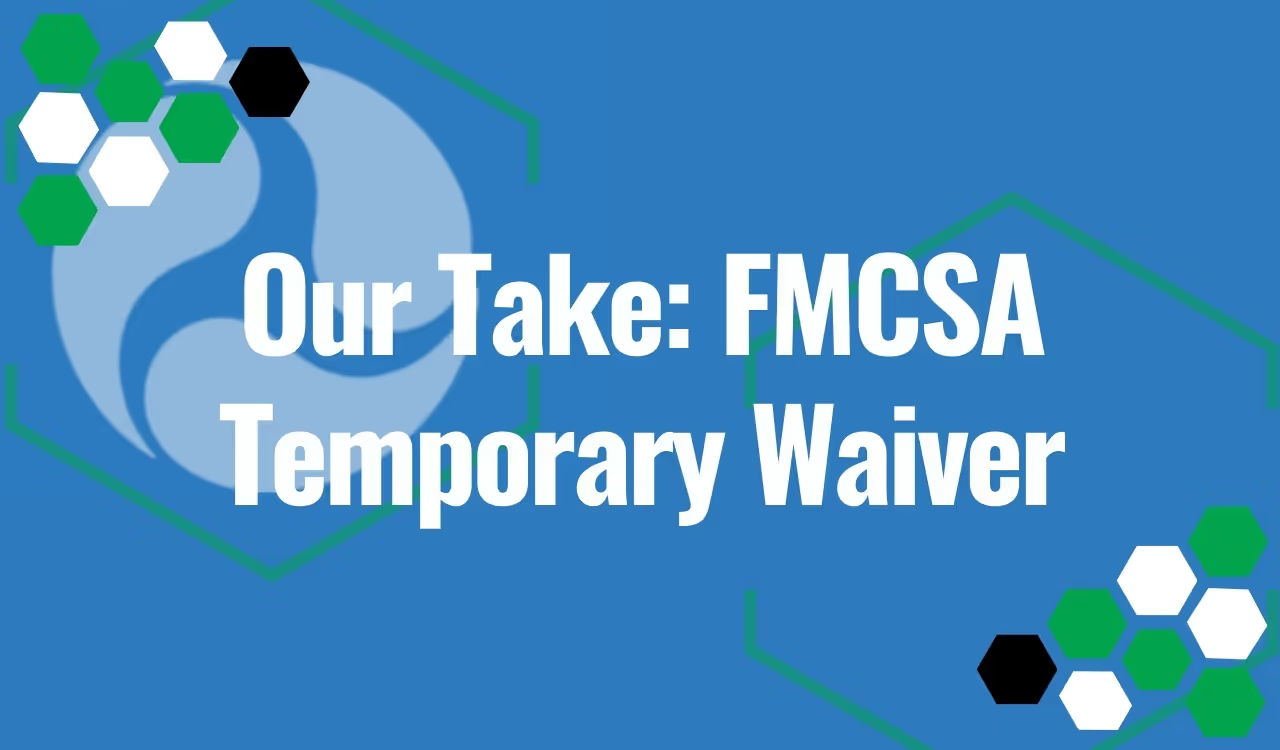Our Take: FMCSA Temporary Waiver

In the world of fleet management and mobile truck repair, staying up-to-date on regulations is just as critical as proper maintenance. For a diesel mechanic shop like Schroeder, understanding new rules from the FMCSA is essential for supporting our customers and their business. The recent temporary waiver from the FMCSA regarding the Medical Examiner's Certification Integration (NRII) is a significant development for anyone involved in transportation, including fleet managers, owner-operators, and medical examiners. It highlights the complexities of transitioning to new electronic systems within a highly regulated industry.
FMCSA announced a temporary waiver regarding the Medical Examiner's Certification Integration (NRII) which is a significant development for fleet managers, owner-operators, and medical examiners. It highlights the complexities of transitioning to new electronic systems within our highly regulated industry.
Here are some additional points and ideas that someone should consider when analyzing this news:
- The "Why" Behind the Waiver: Acknowledging Systemic Challenges:
- Complexity of Integration: The waiver itself signals that the transition to NRII isn't just a simple flip of a switch. It implies that integrating medical examiner systems with state driver's license agencies (SDLAs) and the FMCSA's central database is a complex technical undertaking.
- Potential for Bottlenecks: The 15-day grace period suggests an expectation of delays in electronic transmission. This could be due to varying levels of technical readiness across states, software glitches, or a learning curve for medical examiners and state agencies.
- Protecting Drivers from Unintended Consequences: The FMCSA's emphasis on preventing "negative impacts on drivers and their employers" underscores a concern that drivers could be unfairly penalized (e.g., for not having their electronic certification immediately visible) due to system lags, not their own non-compliance.
- The Importance of the "Paper Copy" During Transition:
- Redundancy is Key: The recommendation for certified medical examiners to continue issuing paper certificates, even with electronic submission, is crucial. It acts as a necessary backup and immediate proof of certification in case the electronic system is not yet fully functional or accessible by enforcement.
- Driver Responsibility: Drivers should be advised to always carry their valid paper medical certificate during this period. Relying solely on the electronic record, even with the waiver, could lead to unnecessary roadside stops or scrutiny if the system isn't updated in real-time for enforcement officers.
- Implications for Motor Carriers and Fleet Managers:
- Continued Vigilance: While the waiver provides a buffer, motor carriers should not become complacent. They still need to ensure drivers obtain their medical certifications promptly and that the results are submitted.
- Internal Tracking: Fleets should maintain their own robust internal tracking systems for driver medical certifications, including the dates of examination, expiration, and confirmation of submission (both paper and electronic, if possible).
- Communication with Drivers: It's vital for fleet managers to communicate clearly with their drivers about this waiver, emphasizing the need to carry paper copies and understand the transition process.
- Monitoring State-Specific Progress: The article mentions guidance for drivers licensed in states that haven't yet implemented NRII. Fleet managers with drivers operating across multiple states or licensed in different states need to actively monitor the NRII implementation status in each relevant state. This could involve checking state DMV/CDL websites or FMCSA updates.
- Long-Term Vision of NRII:
- Enhanced Data Accuracy and Accessibility: The ultimate goal of NRII is to create a more secure and efficient system for tracking driver medical qualifications. This should lead to fewer fraudulent medical certificates, faster updates to driver records, and easier verification for enforcement.
- Improved Roadside Enforcement: Once fully implemented and stable, NRII should allow roadside enforcement officers to quickly and reliably verify a driver's medical certification electronically, streamlining checks.
- Reduced Administrative Burden (Eventually): While the transition might be bumpy, the long-term aim is to reduce the administrative burden associated with paper-based medical certification for drivers, medical examiners, and motor carriers.
- What to Do Now (Beyond the Waiver):
- Educate Your Team: Ensure all drivers, dispatchers, and safety personnel are aware of the NRII rule and this temporary waiver.
- Verify Medical Examiner Certification: Ensure that the medical examiners your drivers use are indeed FMCSA-certified and understand their electronic submission responsibilities under NRII.
- Prepare for Full Electronic Reliance: Use this waiver period as an opportunity to fully prepare for when the paper copy is no longer sufficient. This means ensuring internal systems can quickly access and verify electronic records.
- Provide Feedback: If experiencing significant issues with the NRII transition, consider providing constructive feedback to the FMCSA. These waivers often come after the agency identifies widespread challenges.
In essence, this waiver is a temporary bandage over a potentially complex transition wound. While it provides immediate relief, it also serves as a strong reminder for all those in leadership positions to proactively prepare for the full electronic integration of medical certifications to avoid future compliance issues. Do you have any additional thoughts? We'd love to hear them! Contact us here.
Need a Truck Repair Quote?
Visit us in person or get in touch. We're open Monday to Friday, 7AM-5PM. Or click here to schedule a service.


